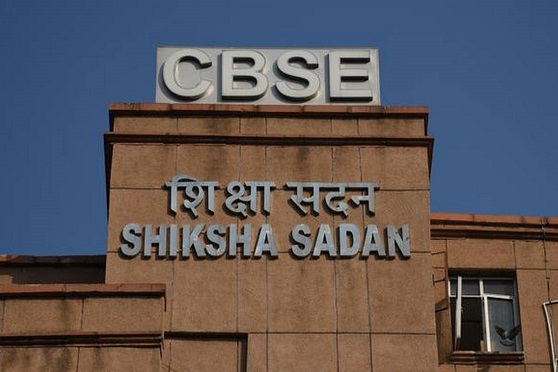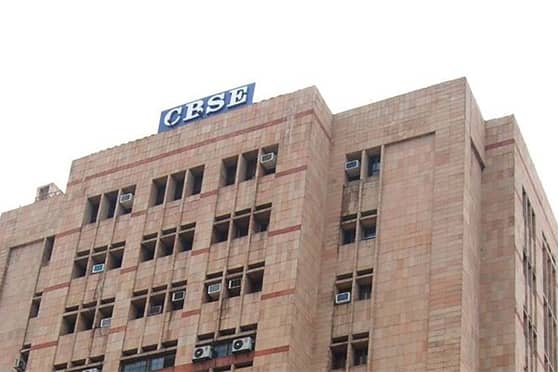A Delhi-based school’s average score in the Term-I CBSE Class XII exams, the newly introduced half-yearly board test, has plummeted to 70 per cent from a mean of 90 per cent in the last five years’ annual board exams.
The school principal, who did not wish to be quoted, attributed the drop to the exam’s unfamiliar format and two years of Covid but wondered how certain other schools had improved their results.
“Our students could not perform well because of the new MCQ system. But the performance of some schools that were this year made home centres (examinees writing their papers in their own school) has improved. It’s intriguing,” the principal said. “Our school was not a home centre.”
The principal questioned the genuineness of the results of the Term-I exams held for Classes X and XII and said these should get zero weightage when the final results are declared after the Term-II exams in summer. Many other schools have expressed similar discontent.
A CBSE circular of March 19 mentioned that the board had started a scrutiny of the performances of 62 schools in the Class XII Term-I exams. Board sources told this newspaper that these schools were all home centres and had shown an unusual hike in their average performance compared with past board exams.
On March 21, the National Progressive School Conference (NPSC) — an association of over 200 private schools across India that has helped formulate school education policies — wrote to the CBSE alleging many home centres had adopted unfair practices to help their students.
“It was observed that during the Term-I examinations, which were conducted at the home centres, many schools adopted unfair means and malpractices,” NPSC chairperson Sudha Acharya wrote to CBSE head Vineet Joshi.
“Consequently, many students of these schools scored full marks in most of the subjects. We are sure that CBSE must also have received a similar feedback on this issue.”
The letter added: “Unfortunately, the performance of students of the schools where the exams were conducted with complete honesty and integrity has not been at par with the aforementioned. This has adversely affected the morale of all the stakeholders.”
The CBSE had split the board exams into two and held Term-I exams in November-December last year, amid a dip in Covid infections, as an insurance against a possible surge in the pandemic preventing board exams in summer this year. In case of such a surge, the Term-I exam results were to be considered final.
The CBSE has not declared how much weightage would be given to the Term-I scores in the final results (if Term-II exams are held as planned between April-end and June 15). The Term-I exam was held in the MCQ mode because the CBSE decided such a format was easier for the students to prepare for.
Acharya’s letter urged the board to award a reduced weightage of 20 to 30 per cent to the Term-I scores for Classes X and XII although the tests covered 50 per cent of the syllabus for both classes.
Acharya told The Telegraph the irregularities highlighted in her letter were based on feedback from teachers and students.
The CBSE does not usually allow home centres except in case of special circumstances such as remoteness of location or security concerns. To reduce travel for the examinees amid Covid, however, it allowed 15,000 schools to become home centres for the Term-I exams.
Till now, the board exams were held in about 6,000 external centres, but the number of centres was increased for the Term-I exams to facilitate physical distancing among the examinees.
Transparency queries
Some parents have also raised issues of transparency, asking why the CBSE has not made the answer keys public or allowed the students to see their evaluated OMR (answer) sheets.
They have also questioned the board’s move of sending the results to individual schools — to be announced by the schools — instead of announcing the results itself as in previous years. As a fallout of this decision, the students have been asked not to send their grievances directly to the board but via the schools.
Anjali Srivastava, whose son appeared in the Class X Term-I exam at a Delhi school, said the boy and many of his fellow students had scored lower than expected but their school initially discouraged them from filing grievances.
“Our hunch is that the CBSE has asked the schools to discourage the lodging of grievances. After a lot of fight with the school, we were able to submit our request,” she said.
Congress Rajya Sabha member K.C. Venugopal on March 25 questioned the delay in announcing the Term-I results and in deciding the weightage to be given to them.
C.B. Sharma, former head of the National Institute of Open Schooling, said the CBSE should have been more careful while selecting schools as exam centres.
“All schools cannot be given equal freedom to hold exams,” he said, ruing the absence of a statutory regulatory body in school education.
Sanyam Bhardwaj, CBSE controller of examinations, said the board would “take strict action against schools found using unfair means and practices”.
He said that if the board had announced the results itself, it would have had to issue a separate mark sheet for the Term-I exams. This would have led to the students being identified as the “Covid batch” throughout their future career.
Making the OMR sheets public would have required “a lot of effort” to create a new system that “would have become redundant in subsequent years” with the return of subjective-type tests, he said.
He added that the weightage to be awarded to the Term-I scores would be decided after “deep and wide consultations” with stakeholders.












